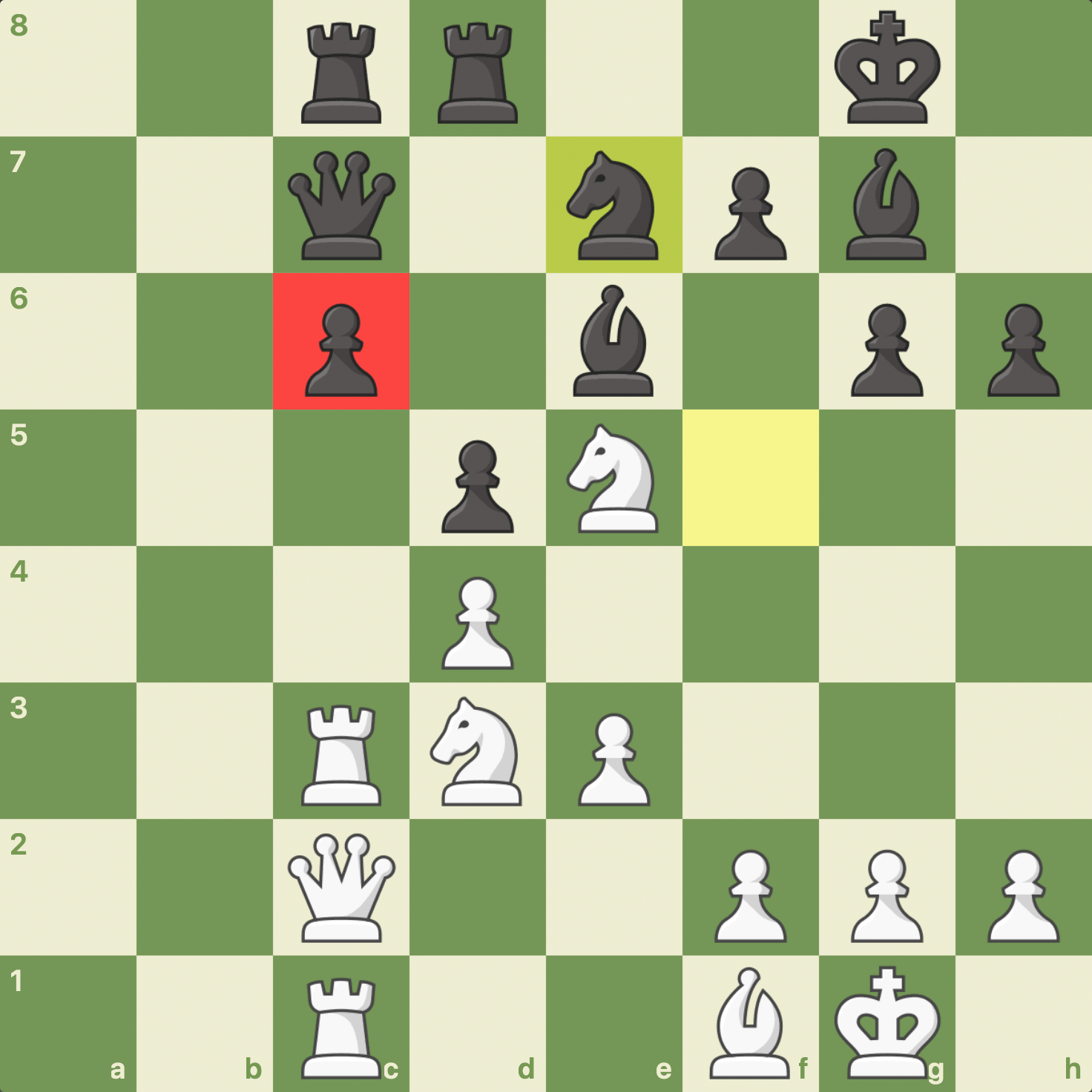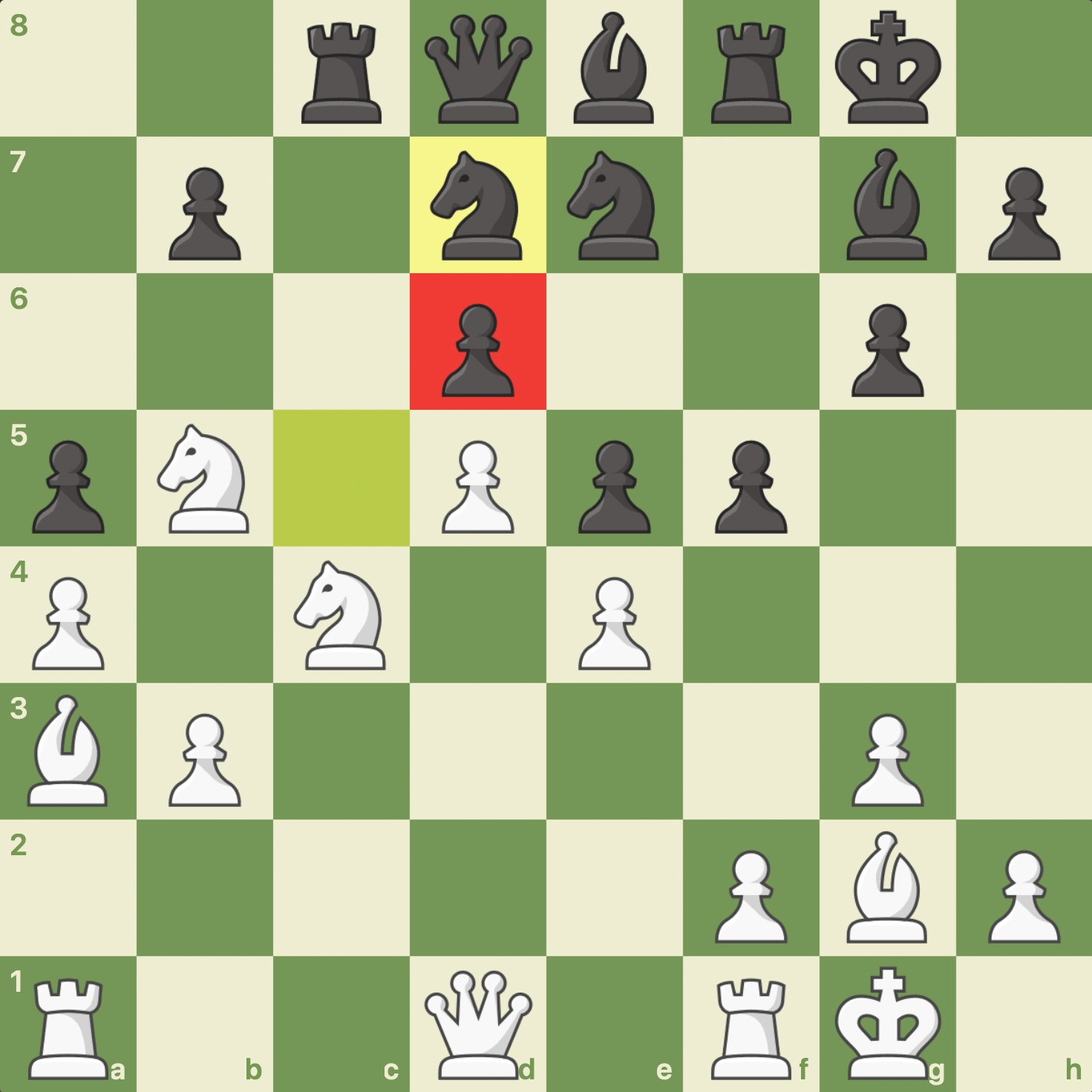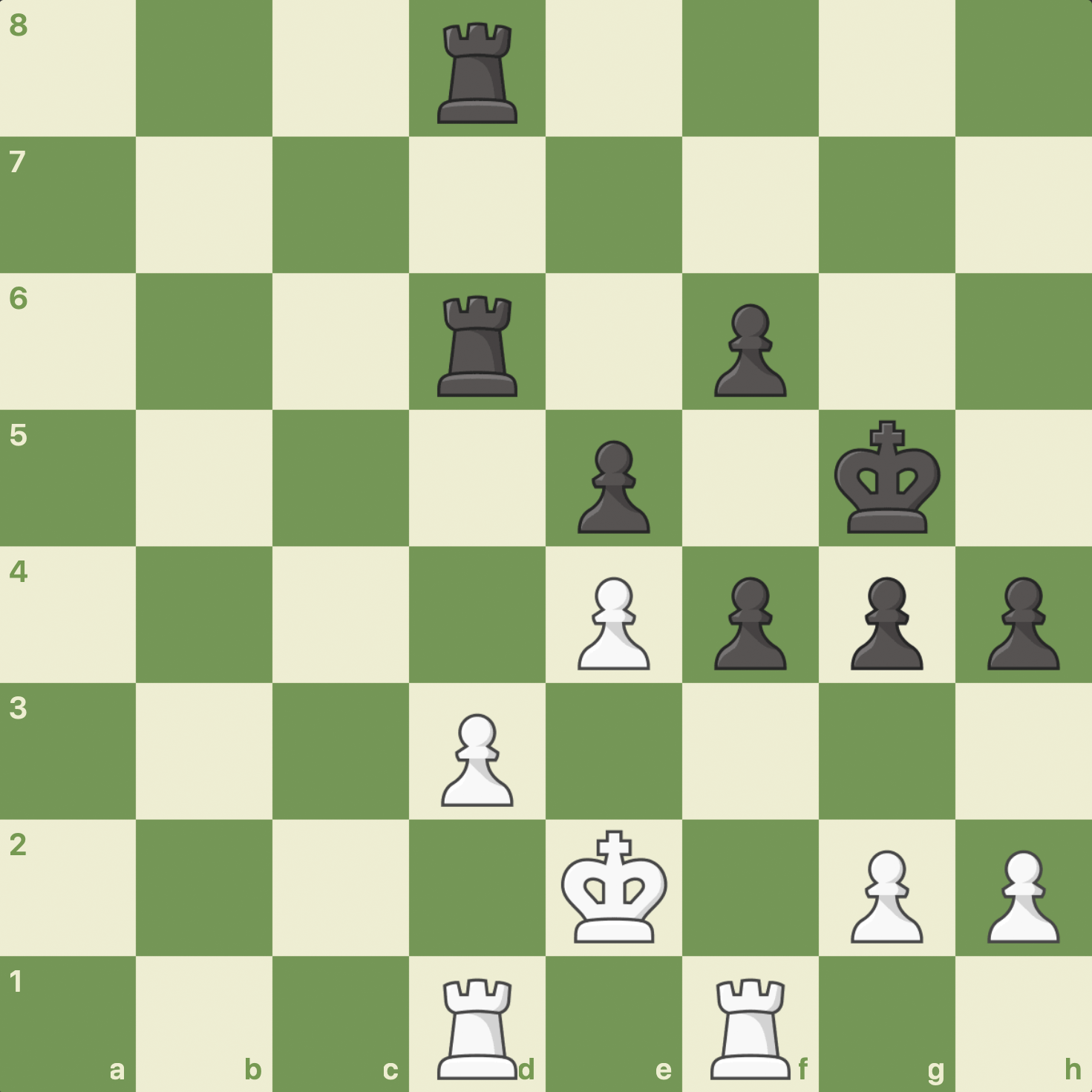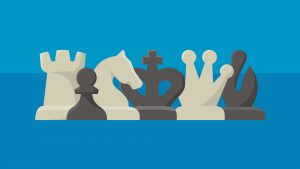
Backward Pawn
What is a backward pawn? Does it actually move backward? Wait—pawns can't move backward! Let's find out what a backward pawn is.
Here is what you need to know about backward pawns:
What Is A Backward Pawn?
There are many different types of pawns, but a backward pawn is one that has no support from other pawns (because they have advanced ahead of the backward pawn or because they no longer exist). A backward pawn cannot advance freely without being captured and almost always supports another pawn on an adjacent file. Let's take a look at an example.
In the following position, Black's pawn on c6 is backward—it cannot be supported by another pawn and cannot advance without being captured:

Now that you know what a backward pawn is, let's find out why they are important!
Why Are Backward Pawns Important?
Backward pawns are important for strategical reasons, mainly because they are a structural weakness (a weakness in pawn structure) that can be targeted and attacked. In the following position, Black's d6-pawn is backward and has been targeted by multiple White pieces:

No matter what Black does, the backward pawn on d6 cannot be saved!
Another general characteristic of backward pawns is that the square in front of the backward pawn is usually a good outpost for the opponent. This idea can be seen in the following example, where Black's d6-pawn is backward and the d5-square is a fantastic outpost for White:

In general, you want to avoid creating backward pawns for no reason as you are creating a target for your opponent to attack! Conversely, it is important to know what backward pawns are so that in the event that your opponent creates one, you can plan to attack (and hopefully win) this pawn.
Test
Now that you know what backward pawns are and why they are important, let's see if you can identify some! Which pawn in the following position is backward?

Yes! The e7-pawn is backward! This position also highlights that this structural weakness can be exploited even in the endgame! Let's try one more. Is there a backward pawn in the next position?

Excellent! Yes, the d3-pawn is backward because it cannot be supported by another pawn and it will be captured if it moves. Nice job!
Conclusion
You now know what backward pawns are, why they are important, and how to identify them! Check out the lesson on backward pawns to test out your new skills and learn even more information! Use this new knowledge about pawns in your own games, and may you attack (and win) many backward pawns!







